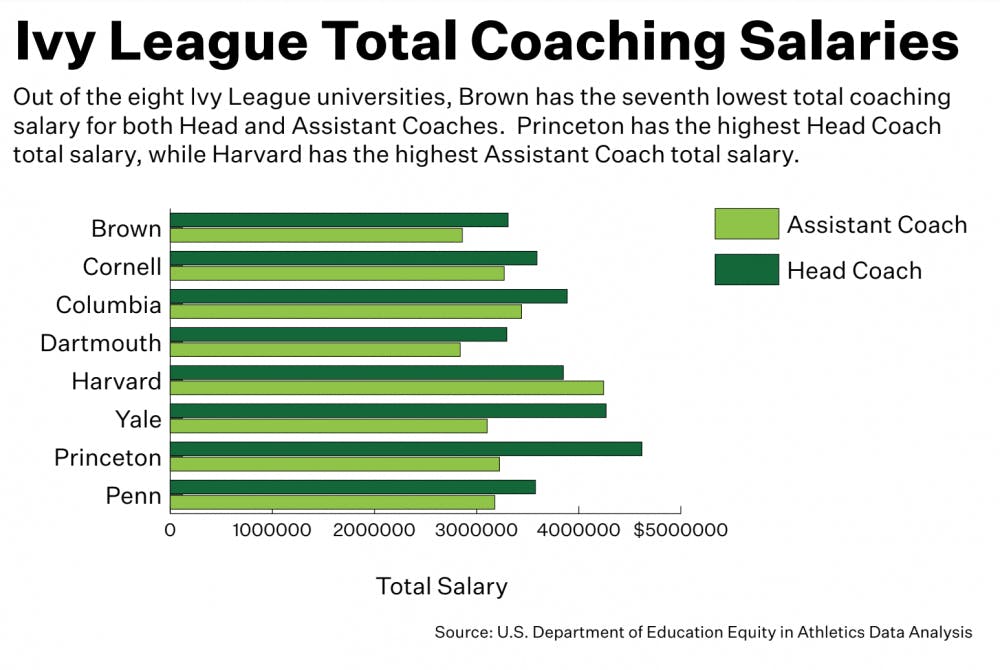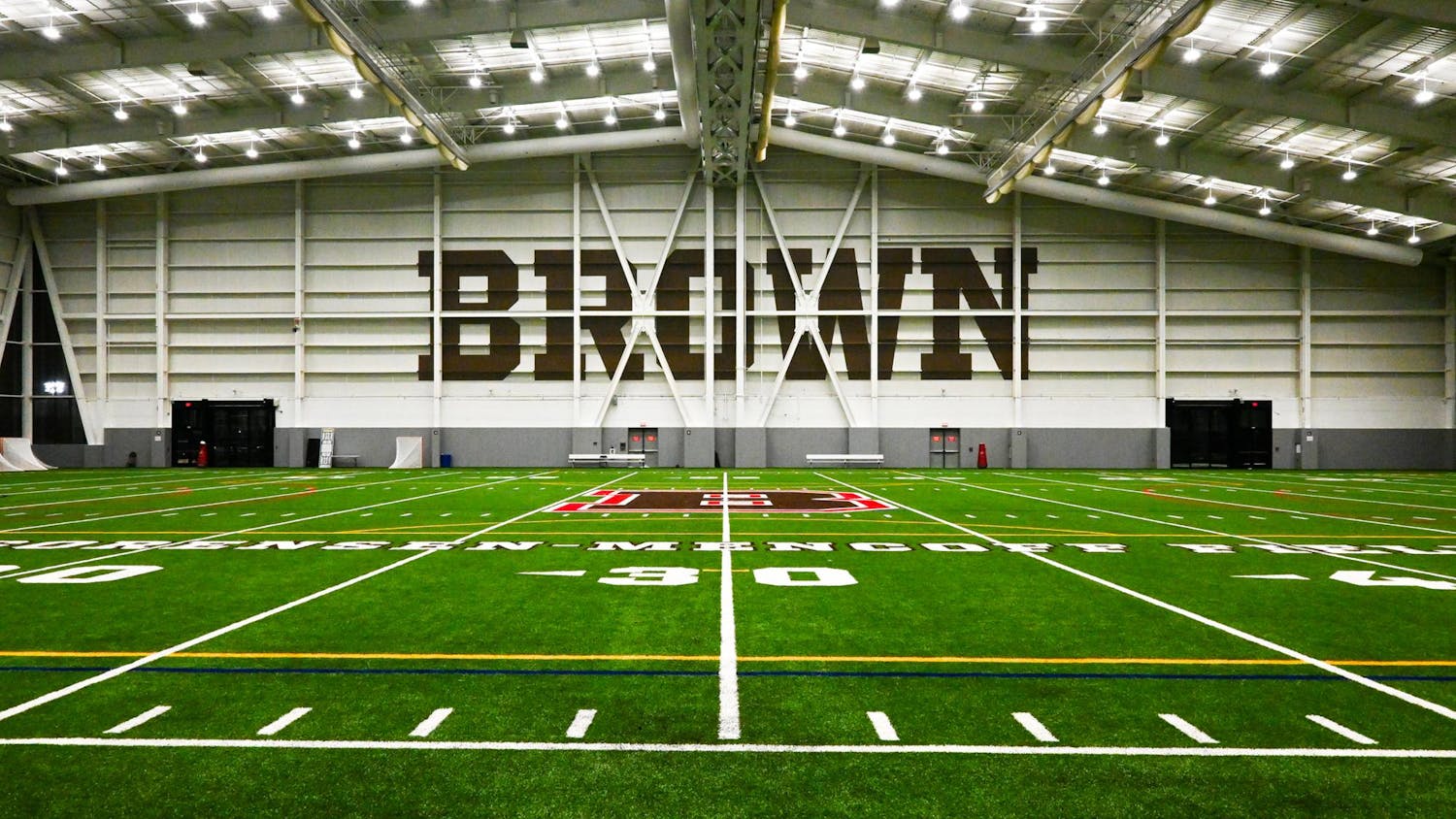Brown head coaches and assistant coaches received the second-lowest total salaries in the Ivy League during the 2017-18 year, according to the U.S. Department of Education’s Equity in Athletics Data Analysis.
According to the report, Brown paid $3,307,782 to 34 head coaches and $2,859,936 to 63 listed assistant coaches from July 2017 to June 2018, the most recent fiscal year that has been made public. In the Ivy League, only Dartmouth spent less on its coaching salaries. The Big Green paid $3,296,260 to 31 head coaches and $2,838,749 to 69 assistant coaches. On average, Brown paid each head coach $97,288, the lowest average in the Ivy League. Columbia’s average salary for its head coaches, the highest in the conference, was 38 percent higher, at $134,026.
“We always want to be competitive when it comes to salaries,” wrote Athletic Director Jack Hayes in an email to The Herald. “We do not want to lose a candidate or a current coach because of the salary. That said, there may be times when there are limits to what we can offer.”
After coaching men’s lacrosse at Brown for 10 years, Lars Tiffany ’90 left the program in 2016 to accept the head coaching position at the University of Virginia, where he led the Cavaliers to a national championship in 2019. He said that while Brown’s salaries allow most head coaches to be relatively comfortable, lower budgets for assistant coaches can present challenges for various programs, including his own. He noted that multiple assistant coach candidates declined job offers at least partly for financial reasons during his time at Brown. When Tiffany left for Virginia, his assistant coaches Kip Turner and Sean Kirwan followed him for significant improvements in salary, he added. Turner and Kirwan did not respond to requests for comment by press time.
“I do remember some clamoring among coaches about how to entice really top-quality assistant coaches,” he said.
Tiffany, on the other hand, did not take the position at Virginia because of a difference in pay. He said his departure from his alma mater was “emotionally difficult,” but receiving an offer from the Atlantic Coast Conference powerhouse was “almost a non-decision.”
Coaching salaries depend heavily on the Athletic Department’s fundraising and revenue, Hayes wrote. According to the EADA report, Ivy League schools do not profit from athletics, meaning that their athletic department’s total expenses, including coaching salaries, must match the department’s total revenue. Brown athletics rank last in the Ivy League in total revenue, generating 19 percent less income than the next-lowest school, Cornell, and 52 percent less than the highest-grossing school, Yale.
Of this revenue, Brown spent over 15 percent on its head coaching salaries — the second-highest proportion in the Ivy League, ranked only behind Princeton.
“Investing in coaches is critical,” Hayes wrote. “We want to attract coaches who are great teachers and motivators and then provide them with the resources to develop successful programs.”
“When it comes to coaching salaries, our primary goal at Brown is not to outrank other institutions simply for the sake of comparison,” wrote Assistant Vice President for News and Editorial Development Brian Clark in a statement to The Herald. “Our goal is to invest in attracting, retaining and supporting the development of talented, high-achieving coaches who field winning teams, serve as teachers, mentors and community leaders, and ensure rewarding experiences for all of our student-athletes.”
Despite his concerns, Tiffany expressed optimism about the future of Brown athletics. Facilities have improved drastically in a short time frame, he said, suggesting that increases in coaching salaries might follow.
“Upon my departure, so much changed — it was almost as if Ruth Simmons had spent the first few years of her tenure raising money and creating a plan and then attacked,” he said. “Maybe when we do get to a point where we feel like most of the Athletic Department facilities are top-notch and up to par, then maybe further fundraising efforts could move toward salary enhancement.”





